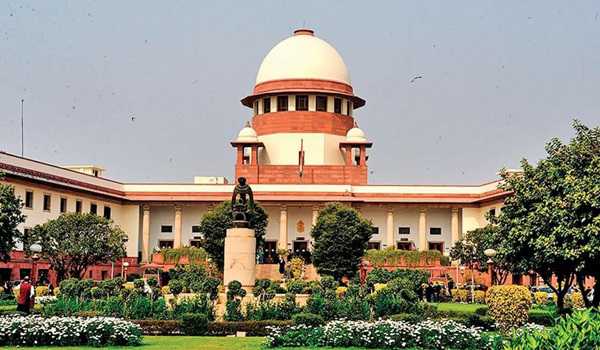Lawyers can’t be held liable for deficiency under Consumer Protection Act: Supreme Court
 |
| Lawyers can’t be held liable for deficiency under Consumer Protection Act: Supreme Court |
New Delhi : In a verdict that potentially impacts the legal profession significantly, a bench of justices Bela M Trivedi and Pankaj Mithal held that legal representation for a fee cannot be classified as a “service” under the Consumer Protection Act, 1986.
The court said that considering the unique nature of services lawyers provide, there is nothing to suggest that the legislature intended to include professionals within the meaning of the 1986 Act and therefore, lawyers would stand excluded from the rigours of the Act.
Furthermore, the bench noted that the legal profession is sui generis - unique in nature and cannot be compared to any other profession.
It added that the arrangement between a client and his lawyer is in the nature of a “contract of personal service”, and therefore, lawyers cannot be dragged to consumer court over alleged deficiency in service.
However, they can be sued in ordinary courts for negligence and other malpractices, added the bench.
By its judgment, the court set aside a 2007 judgment by the consumer commission, which had held that advocates do come under the purview of the Consumer Protection Act and can be dragged to a consumer court by their clients for deficiency in service.
The judgment declared that the legal services rendered by lawyers would come within the ambit of Section 2(1)(o) of the 1986 Act that defines “service”, making them liable under the law.
“Undisputedly, lawyers are rendering service. They are charging fees. It is not a contract of personal service. Therefore, there is no reason to hold that they are not covered by the provisions of the Consumer Protection Act,1986,” the national consumer commission held in its 2007 judgment that was stayed by the top court in April 2009.
There are at least 1.3 million lawyers in India, according to statistics with the Bar Council of India - the apex body to regulate legal education and profession in the country.
Various lawyers’ bodies, including the Bar Council of India, assailed the commission’s judgment in the top court, emphasising that lawyers stand on a completely different footing from any other professionals, such as doctors or other service providers, for a variety of reasons.
First, they must act as officers of the court and their duty towards clients would always be subsumed in the ethical considerations inherent in the legal profession, they argued. They stressed that lawyers require a degree of immunity and independence to effectively perform their duties.
The Supreme Court Advocates-on-Record Association (SCAORA) intervened, emphasizing that lawyers do not control the environment in which legal services are provided.
Unlike other professions, lawyers operate within a framework determined by judges, and the final product of their services—the judgment—is not entirely within their control. Therefore, the association argued, it is inappropriate to assess lawyers solely based on case outcomes.
Assisting the bench as amicus curiae, senior advocate V Giri submitted that there could not be a relationship between the service provider and the service user once the lawyer appeared in court and represented his client.
The 2007 judgment by the national consumer commission had clarified that a lawyer may not be responsible for the favourable outcome of a case because the result does not depend upon only a lawyer’s work. “But, if there is deficiency in rendering services promised, for which consideration in the form of fee is received by him, then the lawyers can be proceeded against under the Consumer Protection Act,” it added.
Further, the commission held that a lawyer and a client have a bilateral contract.
“On receipt of fees, a lawyer would appear and represent the matter on behalf of his client. To hold that contract is unilateral is to ignore the fact that even after discussion, the client may not engage the advocate, or the advocate may refuse to accept the brief. Hence, such a contract can never be said to be unilateral,” stated the commission.







No comments:
Post a Comment